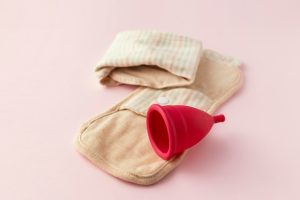
Ever thought about the best way to store your leftovers after a tasty meal? Or pondered if you’re storing your wine the right way? The way we store our food and drinks is super important. It’s not just about keeping things tasty and fresh, but also about keeping the nutritional value high and making sure everything is safe to eat or drink.
In our day-to-day lives, the way we store our food and drinks can really make a difference to how long they last and how good they are when we come to use them. With more and more people becoming aware of food waste and wanting to reduce it, knowing the best ways to store food and drinks is becoming more important than ever.
So, here are eight top tips to help you keep your food and drinks fresher for longer. We’ll cover everything from the basics of using your fridge to the specific needs of things like wine and fresh produce.
**1. Using Your Fridge the Right Way**
Your fridge is a key tool in keeping your food fresh, but it’s all about how you use it. You need to keep your fridge at the right temperature, usually between 0°C and 4°C, to slow down bacteria growth and keep perishable items fresh.
It’s also important to organize your fridge properly. Different sections have different temperatures, which are perfect for different types of food. For example, the lower shelves are cooler and great for raw meat and fish, while the upper shelves are better for dairy and cooked foods.
Make sure there’s enough space for air to circulate around items, and keep your fridge clean to stop cross-contamination and smells transferring between foods.
**2. Storing Wine Properly**
Wine needs special care when it comes to storage. The right temperature is key to keeping its flavor and quality. A wine fridge gives a stable temperature, which is important because changes can spoil the wine. Unlike regular fridges, wine fridges keep a consistent humidity level, stopping corks from drying out.
If wine isn’t stored properly, it can oxidize or become ‘cooked,’ which changes the flavors and makes it less enjoyable to drink.
**3. Storing Fruit and Vegetables Correctly**
Fruit and vegetables can be tricky to store because they all have different shelf lives and conditions they like best. Some, like bananas, tomatoes, and potatoes, are best kept at room temperature because putting them in the fridge can change their taste and texture. Others, like leafy greens and berries, should be kept in the fridge to keep them fresh.
Using the drawers in your fridge for fruit and vegetables can be a good idea because they’re designed to hold moisture and keep things fresh. Also, remember that some fruits give off a gas called ethylene, which can make other produce ripen and spoil faster.
**4. Keeping Dry Goods Fresh**
Pantry staples like grains, pasta, and spices last a long time but still need to be stored properly to keep their quality. Keeping these items in airtight containers helps to keep them fresh and protects them from pests and moisture.
Store them in a cool, dry place away from direct sunlight, which can lower their quality over time. Regularly check your pantry items for signs of spoilage or pests, and keep them organized so you can easily keep track of their use-by dates.
**5. Freezing Food the Right Way**
Freezing is a great way to make many foods last longer, but you need to do it right to keep their quality. When freezing food, use airtight containers or freezer bags to protect against freezer burn, which happens when air gets to the food and lowers its quality.
Label and date all items before freezing them so you know what you have and can use them within the best time frame. It’s also important to cool food before freezing it. Freezing food quickly helps to keep it better, so turn your freezer to a colder setting if you’re adding a lot of items at once.
Remember, most cooked dishes, meats, and many fruits and vegetables freeze well, but some things like vegetables with a high water content and certain dairy products might not do so well.
**6. Keeping Baked Goods Fresh**
Baked goods like bread, pastries, and cakes can go stale quickly if not stored properly. Bread, for example, is best kept at room temperature in a bread box or wrapped in a paper bag. Putting bread in the fridge can make it go stale faster.
For longer-term storage, most baked goods can be frozen, but make sure they’re wrapped tightly to stop them drying out. Things like cakes and pastries are best eaten within a day or two and can be stored under a cake dome or in a container to keep their moisture and texture.
**7. Storing Drinks Properly**
While you need a wine fridge for wine, other drinks can be stored in your regular fridge. Dairy and plant-based milk should be kept in the fridge and used by their expiration dates. Juices and soft drinks should also be kept in the fridge once opened and drunk within a few days to keep their flavor.
Even bottled water has a shelf life and should be stored in a cool, dark place away from chemicals or strong smells, which can get into the plastic and change the taste.
**8. Using Vacuum Sealing**
Vacuum sealing is a great way to make food last longer. By taking the air out of the packaging, you can really slow down the oxidation and growth of bacteria and mold.
Food that’s vacuum-sealed can last 3-5 times longer than food stored in plastic bags or containers. This method is especially good for meats and fish, both in the fridge and freezer, as well as for dry goods like nuts and cereals that can go stale quickly.
While a vacuum sealer can be a bit of an investment to start with, the savings in food costs and reduced waste can make it worth it.
**Conclusion:**
Storing food and drinks properly is a simple but effective way to make them last longer and keep their quality high. By using your fridge properly, understanding the unique storage needs of things like wine and fresh produce, and storing dry goods effectively, you can make sure your food stays fresh and tasty for as long as possible.
Not only does this make things taste better and keep their nutritional value high, but it also helps to reduce food waste and promote a more sustainable lifestyle. Remember, the way we store our food can have a big impact on how much we enjoy it and on our health.






